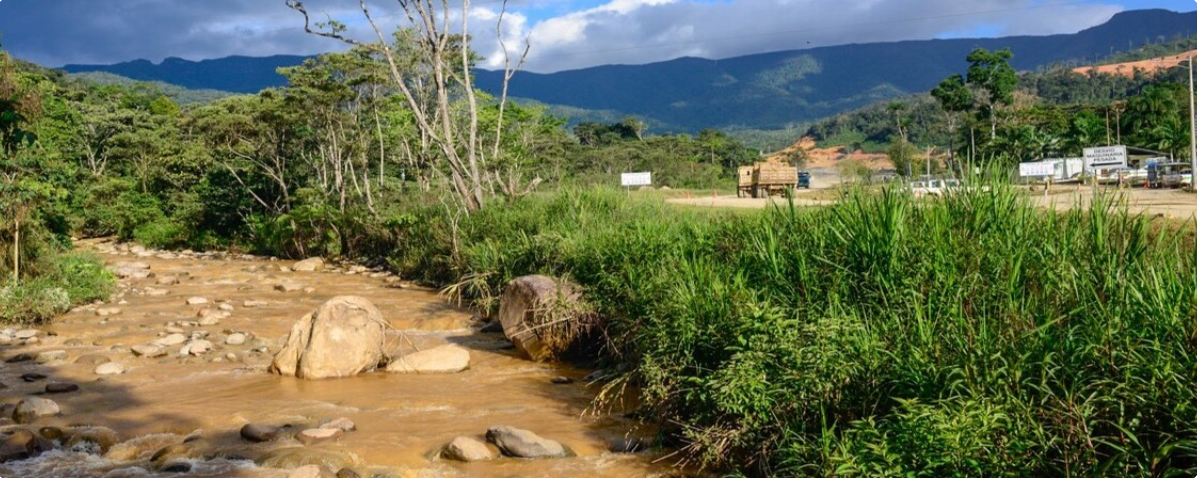China adopts the United Nations’ suggestions to improve environmental conflicts in Latin America.
It’s been a little over a decade since China launched its Belt and Road Initiative, a global program to improve relations with Latin America and other developing regions through trillions of dollars in investment in infrastructure and energy projects. But China hasn’t always carried out those projects in a responsible way, sparking outcry about their environmental impact and human rights violations, especially against Indigenous communities.
Recently, China was up for a Universal Periodic Review with the U.N. Human Rights Council, in which other member countries analyzed its actions abroad and provided recommendations to improve. Some of the most popular concerns have been emblematic of the environmental and social conflicts affecting Latin America, including violence against activists, rushed impact studies and weak oversight of projects ranging from dams and highways to mines and bridges.
China accepted a record ten out of 11 recommendations, giving hope to some that the country will change how it handles future projects in the region.
“China’s recognition of these problems is a crucial step towards accountability and transparency,” Paulina Garzón, director of Latin America Sustentable, said in a statement.
More than 200 civil society groups participated in the process, including a consortium from Latin America called the Collective on Chinese Financing and Investment, Human Rights and Environment (CICDHA), made up of groups from across the continent.
Ahead of the review, CICDHA analyzed 28 Chinese projects in Latin America and found that ten of them lacked a complete and thorough environmental impact assessment, suggesting that many companies break ground without fully understanding how to prevent pollution, limit carbon emissions and avoid destroying surrounding ecosystems.
One of the projects is the 90-megawatt Rucalhue hydropower plant in southern Chile, where Indigenous Mapuche-Pehuenche communities say they weren’t properly consulted about the impact it could have on the Bío Bío watershed.
Another is the San Carlos Panantza copper mine in Ecuador, made up of 13 mining blocks covering 41,000 hectares (101,313 acres), some of which overlaps with Shuar Arutam Indigenous land. Residents have expressed concern about pollution of the Zamora River.
China accepted the U.N. recommendation — officially submitted by Chile and Portugal — that the country pursue stronger legislation to protect peoples’ right to a clean, healthy and sustainable environment. This can be achieved by carrying out thorough studies before projects break ground, it said.
“We hope that accepting this recommendation by China will be a significant step towards having more rigorous environmental assessments, which include the effective participation of affected communities,” Lucio Cuenca, director of the Latin American Observatory of Environmental Conflicts, said after China’s decision.
China also accepted the recommendation that it create safer conditions for environmental and human rights defenders. Numerous projects across the region have been marked by violence against local communities speaking out against a wide range of issues, from pollution and deforestation to workers’ rights.
One of the most egregious cases involves the Las Bambas copper mine in southeastern Peru, where there were 72 complaints about human rights abuses between 2010 and 2023, according to the Business and Human Rights Resource Centre. Of the 72 complaints, 38 were attacks against people who opposed the mine.
In a similar recommendation, several countries asked that China take steps to ensure that its companies and financial institutions respect human rights abroad, including through more rigorous prior consultation processes and accountability measures.
“The lack of accessible and effective mechanisms has made it difficult for affected communities to file complaints and obtain redress for damages caused by Chinese companies and banks in the region,” said Sofía Jarrín of the Alliance of Human Rights Organizations, a coalition based in Ecuador.
While China’s acceptance of the recommendations can be viewed as a positive development, there’s no guarantee that it will follow through on its promises. The country accepted six similar recommendations during its last periodic review, and almost nothing has changed in that time, some critics say.
In some cases, including the Las Bambas mine in Peru, projects appeared in the previous review and then again this time around.
To ensure that the region sees change before the next periodic review in four years, CICDHA groups said Chinese embassies in Latin America should start acting as “formal channels” of communication between businesses, financial entities, the government and civil society. This will make it easier to address social and environmental conflicts before they escalate, they argued.
There also need to be better “repair and remediation” measures for negative impacts that have already taken place.
“This collaborative approach will not only allow for a better understanding of challenges and opportunities, but also ensure that the policies and measures adopted are inclusive, transparent and beneficial to all parties,” the groups said.













